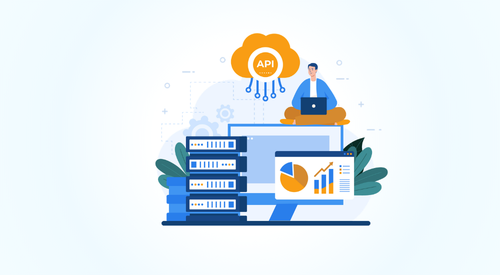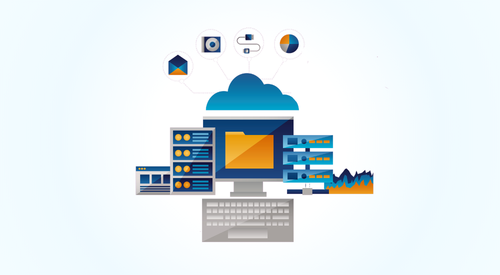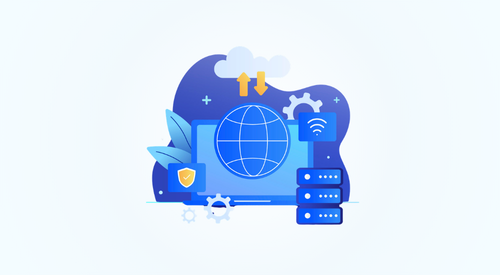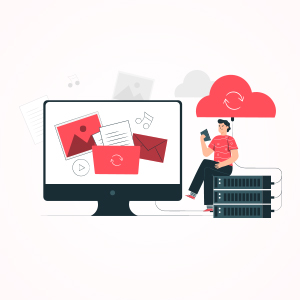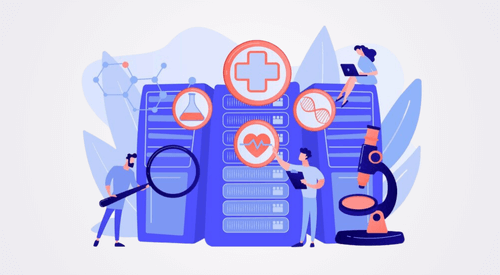

While cloud adoption is on the rise, healthcare organizations are turning to cloud based systems to keep sensitive patient information and also manage their operations in an efficient manner. There are several benefits to moving toward cloud computing, such as cost-cutting, scalability, and better management of data. However, with these perks comes critical challenges relating to data privacy and security in cloud-based healthcare environments.
Develop Secure Healthcare Apps with Niveus
Healthcare providers manage sensitive patient data, including medical records and personal identifiers, which must be securely protected to maintain patient trust and comply with healthcare data security regulations. With healthcare organizations increasingly targeted by cybercriminals for identity theft and medical fraud, data breaches can result in severe financial losses and compromise patient safety. Ensuring strong healthcare data security measures is crucial to safeguarding patient information and adhering to industry standards. In this blog, we will explore the various aspects of data privacy and security in cloud-based healthcare, focusing on the key measures necessary to protect sensitive information and comply with regulatory standards.
Major Data Protection Strategies in Cloud-Based Healthcare
To guard healthcare information in cloud environments, a number of technologies and techniques must be employed to maintain patient information confidentiality and security. Effective security measures increase the integrity of cloud resources while simultaneously decreasing the probability of the data leakage and Health care data alteration. THere are multiple techniques available for healthcare organizations to ensure the quality and reliability of their information systems hosted on cloud.
Encryption and Data Masking
The principles of encryption are the foundation of healthcare data security. It addresses concerns related to patient data privacy when it is in transit between systems and when it resides in the cloud. Encryption also disperses information into a form that cannot be understood without a decryption key and, therefore, less likely to be compromised. Another method of information protection is data masking. Data masking makes the actual data invisible, even if an unauthorized person gains access to the data, elements of the data remain concealed.
Authentication and Authorization
The security of healthcare data in the cloud relies on access control measures. These controls limit who can view or modify patient information, ensuring only authorized personnel have access. Healthcare organizations use Multi-Factor Authentication (MFA), where the user is asked several questions or presented with several forms of identification before they can be allowed into cloud systems. Another security approach that is widely used is the so called role-based access control (RBAC), which prevents users from accessing data which are not required for their work. These measures reduce chances of intrusion to access the healthcare data apart from ensuring adherence to standard best practice fully.
Security Audits and Monitoring
Healthcare organizations must regularly conduct security audits to evaluate their cloud security healthcare strategies. Audits help identify potential vulnerabilities and areas for improvement within the system. In addition, continuous monitoring is necessary to detect unauthorized access or suspicious activity in real-time. A logging and tracking system access can help detect breaches early, allowing healthcare organizations to respond quickly and mitigate any damage. Tools that automate security audits and provide real-time alerts can assist in maintaining the integrity of healthcare data security privacy and compliance efforts.
Implementing a Comprehensive Cloud Security Policy
A cloud security policy can be defined as the framework of guiding principles on how a healthcare organization will ensure the protection of data in cloud systems. It needs to be focused on critical areas such as data encryption, access control, security audits, and regulatory compliance. Having a well-defined cloud security policy will ensure that healthcare data security is kept in check. It is important for healthcare organizations to periodically update the very same policies based on the shifting technology advancements and newly emerging threats. Proactive adoption of cloud security would ensure data privacy and compliance over time.
Employee Training
Employee training has emerged as the most important aspect of maintaining healthcare data security privacy and compliance. Such training sessions should be carried out regularly in healthcare organizations to familiarize employees with the best practices for data protection in the healthcare environment. For instance, specific training programs should be conducted regarding the identification of phishing attacks, proper data handling techniques, and security protocols. All this keeps employees updated with the latest threats and enables them to respond in the most effective way possible to potential security incidents. Companies can educate their employees on how to protect information, and secure cloud-based healthcare systems.
Emerging Trends of Cloud Security in Healthcare
In the healthcare sector, the arena for cloud security is always transforming as various new technologies emerge for further safety of data. It becomes challenging for health organizations to keep updated and to further secure patient data with the change in the world.
AI and Machine Learning in Healthcare Data Security
AI and ML technologies are increasingly getting valuable in data protection in healthcare. These technologies can detect anomalies and raise an alarm much faster automatically than traditional methods should any anomaly or potential breach be seen. AI-driven security solutions focus on the overall protection of cloud-based healthcare systems using patterns to predict when threats may appear. Healthcare providers are now starting to consider AI as a critical tool for their data protection strategies.
Zero Trust Architecture in Healthcare Cloud Security
Zero Trust Architecture is becoming a mainstream approach for security models within an organization. The idea behind the architecture is that no individual, either inside or outside the network, can be trusted, and that continuous verification of identity and access rights of the users takes place. Therefore, healthcare organizations implement the Zero Trust principles, that makes their cloud environment much stronger and prevents unauthorized access. Implementing a Zero Trust model helps organizations ensure tighter control over sensitive information due to growing healthcare-related security concerns in clouds.
Blockchain for Data Protection in Health Care
Using blockchain can contribute to ensuring healthcare data security. This allows for Healthcare data of the patients to be managed in a secure and transparent manner, and the records will produce accuracy with tamper-proofing. Being in its initial phases of adoption, blockchain has exciting prospects in securing data in healthcare through decentralized management of sensitive information.
Conclusion
Data privacy and security in cloud-based healthcare are not just technical requirements but are foundational to building patient trust and ensuring the long-term viability of cloud adoption in the healthcare industry. Protecting sensitive patient data goes beyond implementing security measures—it involves fostering a culture of compliance, continuous monitoring, and adapting to ever-changing threats. Healthcare organizations must take a proactive approach to data protection, recognizing that security is an ongoing process that requires regular assessments and updates to security policies. As healthcare systems continue to rely on cloud technologies, maintaining a balance between accessibility and protection will be crucial for enabling improved patient care without compromising data security.
Furthermore, organizations should recognize the importance of partnerships in achieving their security goals. We at Niveus build robust healthcare solutions with data privacy as one of its core characteristics. Collaborating with trusted cloud service providers, investing in cutting-edge security technologies like AI, and ensuring staff are well-trained in security protocols will help address vulnerabilities. Ultimately, data privacy and security in cloud-based healthcare are critical not just for regulatory compliance but also for safeguarding the future of healthcare, enabling providers to deliver effective, secure, and patient-centered care in a digital landscape. As threats evolve, so too must the strategies to counter them, ensuring that patient data remains secure in an increasingly connected world. Partners like Niveus deliver just that and more.

